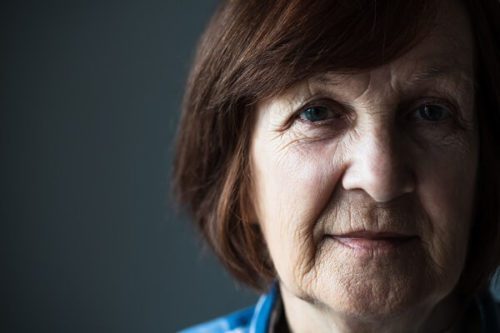Did you know that 27% of adults over age 60 live alone? That’s more than one out of every four older adults! While some older adults choose to live a solitary life, others live alone due to life circumstances like separation from children and family members, death of a spouse, and other forces outside of their control. The effects of social isolation can be severe for seniors- not only for their physical health but also for their mental well-being. It is vital to understand the risks of social isolation. This article will share crucial information on social isolation in older adults and things you can do to help your elderly loved one.If you or someone you know needs assisted living and memory care services in Mandeville, Louisiana, don’t hesitate to contact Peristyle Beau West. Our team of caregivers is expertly trained to help with activities of daily living and debilitating illnesses. We are excited to get to know you and your family!
Mental Health and Social Isolation
As we age, our focus often shifts to maintaining physical health; however, supporting mental health in older adults is equally as important. Communicating with friends and loved ones and socializing in a community play a huge role in our mental health. So what is social isolation?Social isolation refers to when an individual lacks a social network, including friends, family, neighbors, and a community. As people get older, they go through some unavoidable life changes. Their children grow up and move away, friends and family members age and start to pass away, and they may lose a spouse to death or divorce. All of these changes can quickly result in social isolation for older adults.
The Effects of Social Isolation
While some seniors are content to be alone, most crave social needs, just like everyone else. These social needs are significant for seniors, who may be facing more limited physical independence. Social isolation can lead to depression and other difficulties and is a serious health concern for seniors. For older people living alone, rates of depression can be as high as 13.5%. Additionally, isolated seniors are at an increased risk for misdiagnosis and mistreatment of their depression, mainly because older people are likely to suffer from comorbidities like chronic illness, cancer, or diabetes.
Alzheimer’s Disease, Dementia, and Social Isolation
Individuals struggling with Alzheimer’s disease or some form of memory loss are especially likely to feel lonesome because their condition makes it increasingly challenging to interact with others. Sadly, people are more likely to socially exclude those with dementia because they lack the knowledge about how to respond to the sufferer’s condition. Furthermore, living alone is associated with a greater risk of developing cognitive and memory problems, only exacerbating the situation. The Peristyle at Beau West recognizes the importance of social interaction for people with Alzheimer’s and Dementia. We take pride in our award-winning memory care program and provide ample social activities for older adults.
Substance Abuse and Social Isolation
Socially isolated seniors are prone to lean on substances to deal with feelings of loneliness. Substance abuse can compound isolation because they tend to avoid interactions with others resulting from feelings of shame associated with their dependence. Also, studies have shown that substance abuse in seniors is more dangerous for seniors than in younger age demographics due to several factors. As we age, our bodies cannot process drugs and alcohol as quickly and efficiently as they once did. Additionally, seniors take more medications than younger age demographics, and mixing medications can lead to drug overdoses. Contact a medical professional immediately if you sense your elderly loved one is coping with isolation through substance abuse.
Tips For Seniors to Combat Social Isolation
Coping with social isolation and loneliness is not easy. We have compiled a few suggestions to help your elderly loved one if they find themself isolated.
Video and Phone Calls
When your elderly loved one is feeling down, sometimes all they need is a little companionship. Modern technology is a fantastic tool for seniors to combat social isolation. Face-to-face video calls, emails, text messages, and phone calls are excellent for staying in touch. While your loved one may feel hesitant to reach out for fear of burdening them with their problems, remind them that you love and value them. Even though you may be busy with your kids, job, social life, etc., take the time for them! It is important to remember that their emotional and social needs are vital, and receiving them with love when they reach out is crucial. Here are several other helpful tips for caring for an elderly relative if you live out of state or far away.
Encourage Them to Join a Class or Support Group
Joining a class or group will encourage your loved one to come out of their shell and interact with others. Classes are a great way to meet new people who share similar interests, swap stories, promote hobbies, and grow friendships. Help connect your elderly loved one with their local community center, gym, or church for classes and groups that interest them. There are so many subjects available – from cars and motorcycles to baking, gardening, yoga, and fishing, the options are endless!
Volunteer!
Volunteering is one of the best activities for older adults, helping to prescribe weekly social interactions and maintain involvement in their community. Studies have shown that volunteering can even reduce mortality risk by up to 47% in middle-aged and older adults! For volunteering opportunities, reach out to local food banks, animal shelters, homeless shelters, schools, and churches.
Conclusion
Social isolation is a significant risk factor for older adults’ mental, emotional, and cognitive health. People who feel lonely are more likely to put their health at continued risk by abusing substances and prescription medications. By spreading awareness and information about the effects of social isolation, we hope to encourage those close to our seniors to continue to play a role in their loved ones’ social lives. With daily activities, classes, volunteering ideas, and more, you can make a vital difference in the quality of life of your loved one.
At The Peristyle at Beau West, we are passionate about providing seniors with everything they need to maintain a social and active lifestyle. Check out our services page or contact us today to learn more. We look forward to hearing from you!






